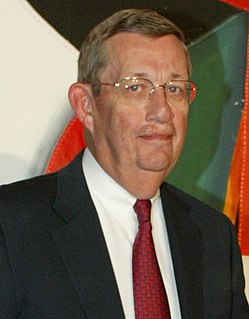A Quote by Raghuram Rajan
The American political scientist Francis Fukuyama has argued that liberal democracies, with their political freedom and economic success, have three important pillars: a strong government, the rule of law, and democratic accountability. I would add a fourth: free markets.
Related Quotes
The most widely discussed formulation of [the One World model] was the "end of history" thesis advanced by Francis Fukuyama. "We may be witnessing," Fukuyama argued, "the end of history as such: that is, the end point of mankind's ideological evolution and the universalization of Western liberal democracy as the final form of human government." The future will be devoted not to great exhilarating struggles over ideas but rather to resolving mundane economic and technical problems. And, he concluded rather sadly, it will all be rather boring.
Viewed as a means to the end of political freedom, economic arrangements are important because of their effect on the concentration or dispersion of power. The kind of economic organization that provides economic freedom directly, namely, competitive capitalism, also promotes political freedom because it separates economic power from political power and in this way enables the one to offset the other
Good, healthy democratic societies are built on three pillars: there's peace and stability, economic development, and respect for rule of law and human rights. But often, we take stability - peace in terms of security and economic activity - to mean a country is doing well. We forget the third and important pillar of rule of law and respect for human rights, because no country can long remain prosperous without that third pillar.
The EU might have become a large federal nation. But they would have had to do things differently. Number one, they would've had to make people feel like participants in a common project of autonomous law-giving. Much more political accountability, much more participation. That didn't happen, I think, because the movers and shakers were more concerned with economic union than political union.
I want people to understand that, look, we're in a period of democratic deficit, democratic recession. There are fewer democracies in the world today than in 2005, and in many of the countries that are still technically democracies, we're seeing a reduction in the rule of law. And that's especially true in Central Europe, but it's also true of places like South Africa, the Philippines.


































